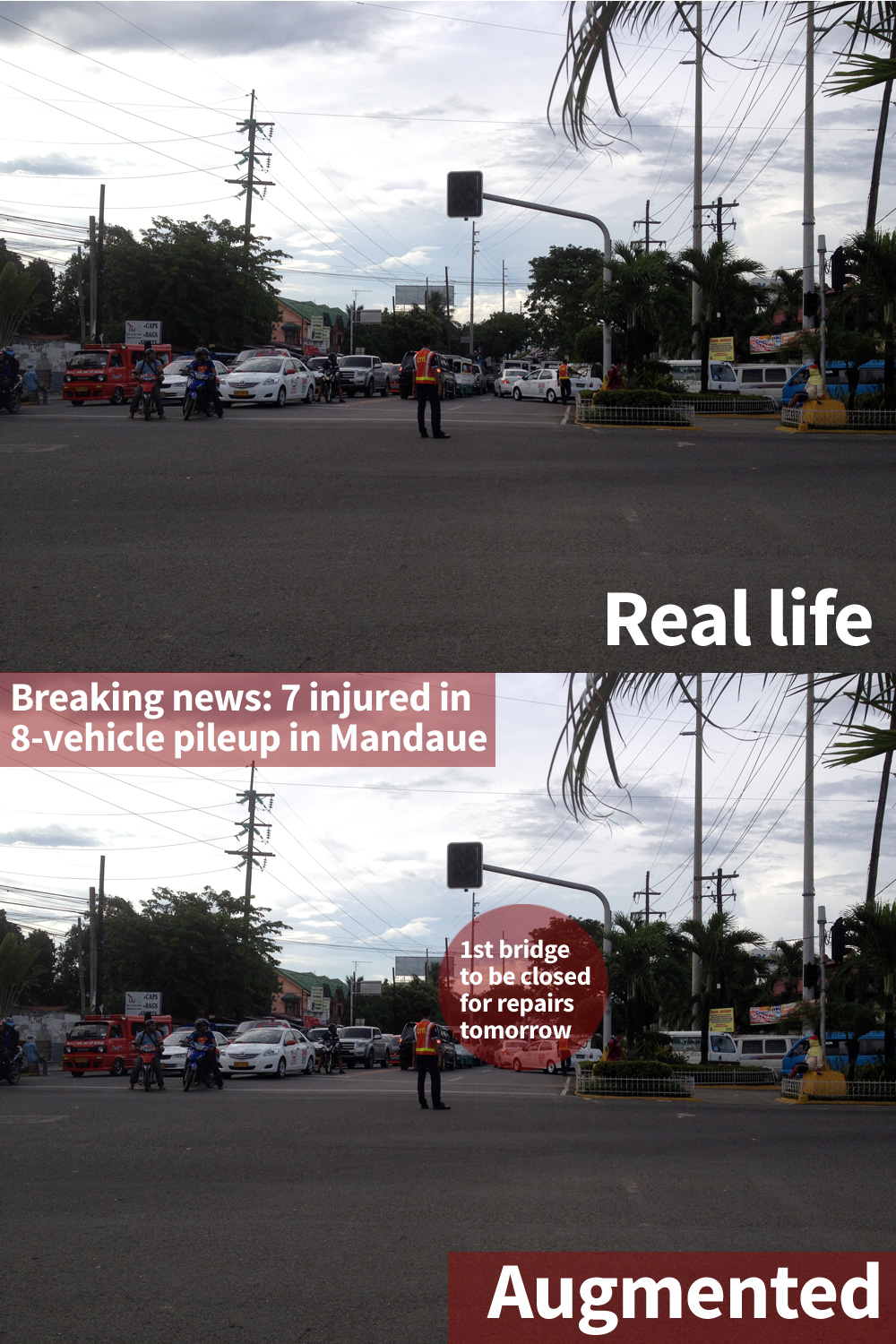Google Glass will be available to regular people starting this year for less than $1,500 or P61,000, various technology news websites reported the past few days.
Google Glass is an eyeglass computer that can take photos or videos or display information like weather data or your calendar items on a head-mounted display or take photos and videos. The device is controlled by voice – triggered by the phrase, “ok glass.”
When you say, “take a photo,” it takes a photo of whatever it is that you’re looking at. When you say “take a video,” it does that too. You can even livestream whatever you are seeing through the device and share it with friends.
You can also ask Glass to translate words and phrases for you. Its promotional video had one scene of a person eating on a boat in Thailand and then complementing a local in Thai that the food was delicious after asking Glass to translate it for him.
Google Glass is a research project by Google X Lab, a facility run by Google co-founder Sergey Brin. The lab also produced the Google driverless car.
What’s really exciting about Google Glass isn’t just that it can be used to record your life, what’s more exciting is its ability to augment it.
Data layer on real life
Think about the possibilities: what if upon leaving your house, the system could show you the things that you needed to do for the day and the hour’s top stories while also plotting your best route to the office, taking into account traffic conditions?
What if it shows you the Facebook or Twitter statuses or profiles of the people that you are looking at? Single, married, it’s complicated – what if Google Glass can put a social layer on real life?
What if while buying, the system could also assist you by providing price comparisons or even recipe suggestions?
What if it could alert you to take your medicine or scan what you eat to remind you of your diet?
What if the system could alert you of news stories based on what you see or where you are?
The scenarios above are close to being possible. It’s already being done on mobile, it’s just a matter of porting it to Glass.

NEW WAY TO DELIVER NEWS. Wearable computing like Google Glass will allow us to have a data layer on real life. One of these layers can be news. It can detect that you’re in Lapu-Lapu City, looking at a massive traffic gridlock caused by a vehicular accident a few kilometers away in Mandaue City. The system, upon detecting that you’re near the 1st Mactan-Mandaue bridge, also warns you that the bridge will be closed for repairs soon.
Disruptive transition
I think Google Glass is a really exciting peek into the future of computing. We are in the midst of a disruptive transition to mobile but the move to wearable, as epitomized by the Google Glass, would even be more disruptive.
For content providers like the news media, wearable computing will present a new challenge and offer fresh opportunities to deliver information.
The Google Glass can be a device to navigate the so-called “Internet of things.”
I’ve long been experimenting with ways to put a layer of data on real life. My wife and I are using quick response (QR) codes to deliver tourism and heritage information in some spots here in Cebu and, soon, in Iloilo and Bohol.
Connecting digital to physical
Right now, QR codes are the best way to connect digital content to a physical trigger. The system does not consume bandwidth in finding the location of a digital resource because what it does is just decode a string of characters from the QR code, which is a type of barcode, and use it as input. It could either lead you to a website or trigger the download of bits of data. The next phase to this type of connectivity can be NFC or near field communication.
If you were to do that purely via augmented reality systems (AR) like Google Glass, you would need constant connection to a server to compare what you see with a database of images or GPS locations in order to find a matching content. GPS locations might be easier to implement via a system called “geo-fencing.” That’s what we are looking at next.
But with Google Glass and the next generation of connectivity like LTE, augmented reality will, I think, finally live up to its name and become reality.
The post Life, augmented appeared first on Leon Kilat : The Tech Experiments.

